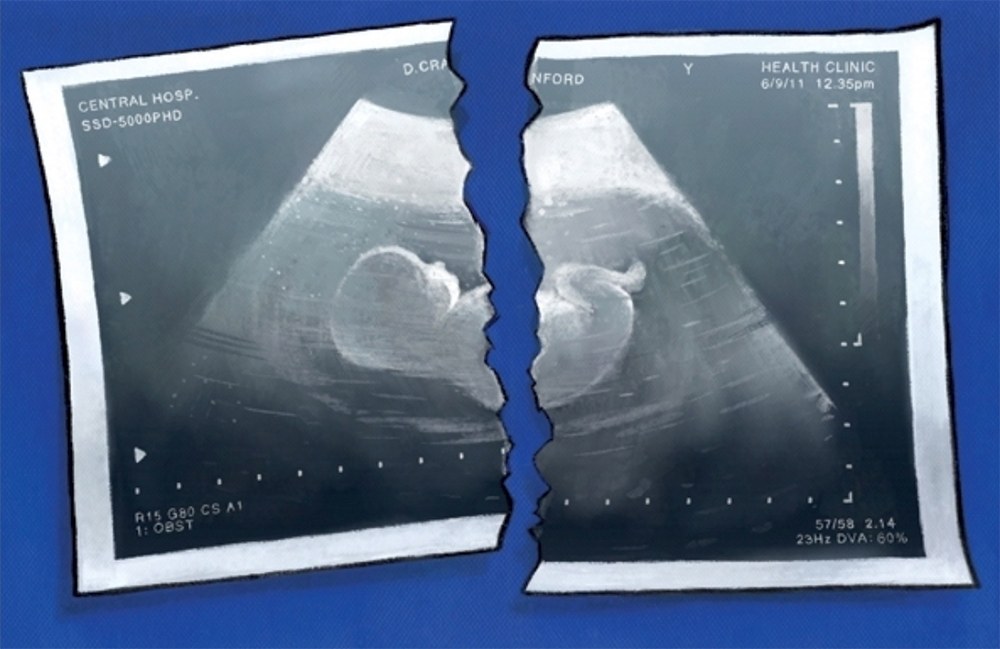For years, the SNP has relied on a particular political alchemy. It takes on extremely liberal social positions to appeal to the left, while dangling independence as a carrot to those on the right. But with the publication of a recent abortion law review, it appears to have gone too far. In attempting to make Scotland one of the most permissive abortion regimes in the world, the review has not simply drifted from public opinion – it has rocketed past it.
It is astonishing that this has been commissioned by a government that claims to champion women’s rights
The proposals are extreme by any measure. At present, abortion is available in Scotland for almost any reason up to 24 weeks of pregnancy. This already goes further than most other countries – across the EU most countries cap access to abortion at 12 weeks. Yet despite already being a noticeable outlier, the Scottish review recommends relaxing that 24-week limit, allowing an unborn child to be aborted for even social circumstances right up to the moment before birth.
Under the proposals, between 24 weeks and birth, just two healthcare professionals – not necessarily doctors – would need to classify the abortion as ‘appropriate’ for it to take place. The definition of ‘appropriate’ could include a woman’s ‘reasonably foreseeable’ future social circumstances. No formal certification would be required. No clear medical thresholds are mentioned.
Even more worryingly, the proposals state that there should be no prohibition on sex-selective abortion. In other words, a child could be aborted merely because they are a daughter to parents who want a son. It is astonishing that this has been commissioned by a government that claims to champion women’s rights.
If the SNP expected its proposals to sail through the usual progressive applause, it has badly miscalculated. Even in Holyrood, where politicians are typically afraid to touch hot-button issues, centrist politicians have been moved to speak out. Pam Gosal MSP and Annie Wells MSP have expressed horror that sex-selective abortion, widely recognised as a form of gender-based violence, would be sanctioned in Scotland under these proposals.
More striking still is the opposition from prominent feminist thinkers such as professor Kathleen Stock and Julie Bindel. These are not women known for marching under the banner of social conservatism. The fact they have raised the alarm speaks volumes. What we are witnessing is not a fringe backlash, but a mainstream recoil.
The truth is that most people, regardless of their position on early-term abortion, do not accept the idea of ending the life of a viable, fully formed child on social grounds. Indeed, ComRes polling from 2017 shows that only 1 per cent of British women actually support abortion up to birth – and 70 per cent of women would have supported the limit being reduced.
We’ve seen the scans – some of us have felt the kicks and the hiccups of an infant growing inside the womb. At nine weeks, a baby’s taste buds start to develop. At 12 weeks, all their organs, muscles, limbs and bones are already in place. Research suggests that they can feel pain from 15 weeks, or even earlier. At 18 weeks, they can hear and respond to music outside of the womb. With medical technology advancing every year, unborn babies have now survived outside the womb, with support, from as early as 21 weeks and a day. Moderate Scots do not want to see unborn babies killed in the same hospital where their peers of the same gestational age, born prematurely, are supported in NICUs to fight for their lives.
Yet under the review’s proposals, a child’s life could be ended at the stroke of a pen, without medical need.
The SNP leadership have made great efforts to ‘steady the ship’ following the chaotic backlash to their confusion about the meaning of the word ‘woman’ in years past. Yet once again, a blunder into extremity has left them exposed, and isolated. The public may tolerate constitutional distractions, or even shrug at legislative experiments that tinker around the edges of social policy. But a proposal to allow full-term abortions for social reasons cuts to something deeper: a sense of moral red lines that most people believe should not be crossed.
The SNP has spent the past decade talking about being on ‘the right side of history.’ But history’s judgement is rarely kind to those who mistake extremism for progress. On abortion, the party has not simply misread the room – it has left the room entirely.







Comments